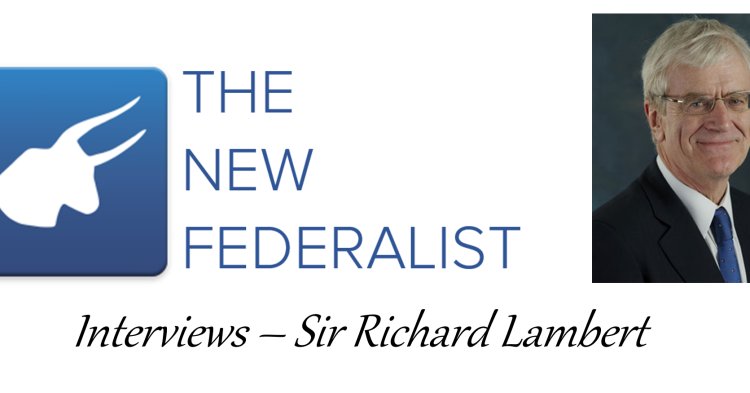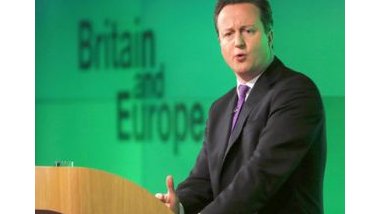Take a look at any pro-European publication in Britain today and it will not be long before you come across a reference to the economic benefits of being a member of the EU. This is hardly surprising, given the amount of investment, trade and jobs generated by the Union and the difference the country would see were Brexit to take place. In TNF’s interview with Sir Richard, however, it becomes clear that this is far from the full picture.
The Economic Arguments
When searching for economic reasons for UK membership of the European Union, there is no shortage of arguments. As ex-editor of the leading publication The Financial Times, Sir Richard is well-placed to pass judgement on this, claiming that foreign direct investment, trade, competition and the single market are all key factors in the UK’s membership. The UK, he claims, have “a much stronger seat at the global trade table than we would have as a single country.”
One of the most popular arguments with pro-European campaigners is the threat of severing ties with the continent which would in turn prompt Scottish independence. Isolated and without strong trade links, the island would – in Sir Richard’s words – be “up the creek”. As if this was not off-putting enough, it also becomes clear that the idea of negotiating a “Swiss-style” agreement for the UK post-Brexit would simply not be an option. As “neither appropriate nor achievable”, such an arrangement would be rendered impossible by the nature of UK-EU relations after the messy departure from the Union. As Sir Richard points out, “if we leave, we are not going to leave in a way where everyone’s aligned towards us. They’re not going to give us favourable deals”.
To continue with the doom and gloom that the economic anti-Brexit arguments offer, predictions of life in the UK after the termination of EU membership are suitably dismal. However, rather than the instant mess depicted in the pro-European press, Sir Richard envisions a gradual, “almost undetectable” decline in the British economy. The country would suffer from the long-term consequences of leaving rather than immediate collapse as some propose. The economy would – as he puts it – experience a “long-term withering”.
But are economic arguments really important in this campaign?
Whilst the economic consequences of Brexit would undoubtedly be dire, however, Sir Richard is keen to make it clear that money should not be the main focus of the “in” campaign, nor should it be the main reason for staying.
Apocalyptic visions of British economic collapse to one side, it is important that the campaign is not solely focused on money, just as it is not the sole aim of the European Union itself.
“A referendum that is fought only on economic arguments and that is narrowly won will not solve the [EU membership] question.” Whilst current efforts to promote British EU membership rely mainly on addressing economic issues and busting myths promoted by anti-EU campaigners about migrants, contributions to EU budgets and financial legislation, a large area is being neglected. Rather than fear-mongering, campaigners should be celebrating the cultural exchange and sense of community that comes as being part of the EU. Using the Scottish referendum as a model, Sir Richard explains that it is important not to base a winning vote on the fear factor, but rather strive for “a referendum which is fought on the ideas of values, aspirations” so the outcome is a reflection of the population’s appreciation, not their fear.
So, what will the campaign ideally look like?
Sir Richard’s arguments have given the pro-EU campaigners of Great Britain and their allies across the continent food for thought. Whilst economics is a key reason for UK membership, it is part of a far broader picture detailing Britain’s reasons for staying in. Rather than fear-mongering, should campaigners celebrate our current situation? Britain should vote to stay not because it feels it has to, but because it feels it wants to. Then, and only then, will the membership question be solved for good and the path towards a stronger Union be opened. The EU brings many benefits to the country, and this is the message that the “in” campaign must spread.





Follow the comments: |
|
